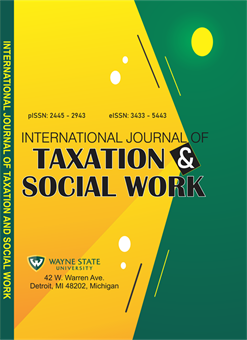INTERNATIONAL JOURNAL OF TAXATION AND SOCIAL WORK (IJTSW)
Lorenzo Valla on the Problem of Free Will and Modal Logic
E-ISSN: 3433-5443
P-ISSN: 2445-2943
DOI: https://iigdpublishers.com/article/642
The question of free will, that is, the conflict between God's foreknowledge and man's free will, has been a long-standing controversy in the history of philosophy, dating back to Aristotle's discussion of "future contingency" and his refutation of "fatalism". Valla, as a Renaissance humanist, criticized Boethius's solution to the problem of free will in his ―Dialogue on Free Will‖, but was criticized for not answering the question directly. However, Valla responded to the question again from the perspective of modal logic in his ―Dialectical Disputations‖. This paper examines the ancient and medieval contexts of the problem of free will separately, and reassesses Valla's logical solution to the problem of free will in terms of the relationship between "future contingency" and the principle of bi-valence.
Youyang Xu
Aristotle, On Interpretation, 23a5-20.
Boethius, (2008). Translated by David R. Slavitt, The Consolation of Philosophy, Harvard university press Cambridge, Massachusetts London, England.
Cicero, translated by H.Rackham, On the Orator: Book 3. On Fate. Stoic Paradoxes. Divisions of Oratory, Loeb, 1989 Christopher Shields, Aristotle (The Routledge Philosophers), Routledge, 2014, P221. First edition 2007.
Fubini, Riccardo. (1999). Contributo per l‘interpretazione della Dialectica di Lorenzo Valla.‖ InFilosofia e scienza classica, arabo-latina medievale e l‘età moderna. Edited by Graziella Federici-Vescovini, 289–316. Textes et études du Moyen Âge 11. Louvain, Belgium-la-Neuve: Fédération Internationale des Instituts d‗Études Médiévales, P316.
Giuliano Mori, (2019. Contingency, Possibility, and Verisimilitude in Lorenzo Valla: Dialectics and Philology, Question, P363-369.
